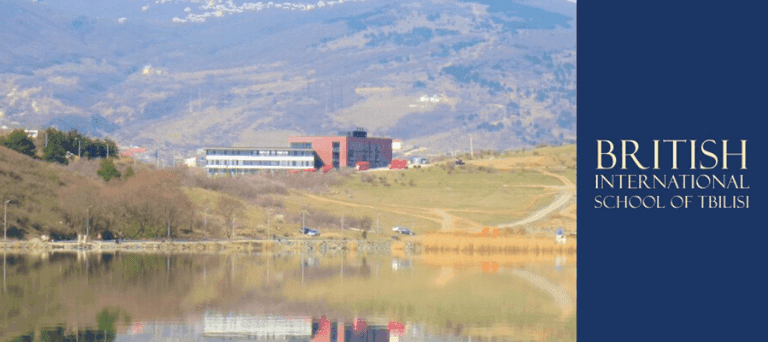Helen Woodward
28 Mar 2020
5
min read

Steve Priest, Principal of the British International School of Tbilisi, shares the struggles, opportunities and silver lining of remote learning in an interview with Helen Woodward, Zen Educate Adviser.
I first met Steve in 2016 when he was Vice Principal at the British School in Kathmandu, Nepal, where he led the school through the 2015 earthquake recovery, re-opening within 48 hours of the disaster. He’s no stranger to leading a school through a crisis.
Now Principal at The British International School of Tbilisi (BIST), Georgia, a non-profit independent school, he has students with over 40 different nationalities in all through school, nursery to 6th Form.
The international community are several weeks ahead of us with home learning, and knowing Steve to be a talented leader, candid Yorkshireman and owner of a warm sense of humour I was delighted when he agreed to be interviewed and share his insights.
How long have you been working remotely for?
We’ve been operating remotely now since 4th March when the Georgian government ordered all schools to close.
What were the values or priorities you took into your planning?
The core values of excellence in learning, holistic experience and individual support remain, but our priorities are now making the learning more accessible without the direct presence of a teacher. This means helping students learn to more effectively become independent learners and parents to become teachers.
What have been the practical challenges and how have you solved them?
The technology was already out there and some of it we were already using, but developing their use from being a support to classroom teaching to the main delivery method has been a challenge for some staff, some students and most parents. Crash courses in effective use of video conferencing software and how to pre-record lessons have been established to support all stakeholders.
The problems of demand on device time in a family with children and parents all trying to work from home is one that is difficult for us to overcome, but we are trying to space out our live sessions to accommodate this.
Parents realising they cannot make their children do schoolwork is another issue that we can only offer individual support and guidance on - this is more difficult when more than 30% of your parent population do not speak English.
The social side of school is also missing and many children are finding life stuck at home difficult. Group free discussions on video conferencing allows children to talk to each other.
Counselling support is also offered by our in-house counsellor. We are also trying out some mass participation events such as the Friday Better Together sing-along - all the students, parents on staff on balconies and in gardens singing and dancing Queen songs at the same time.
How are you managing assessment?
Google Classroom has been in use for all Secondary assessment and feedback for a long time now. We continue to use it and in some respects are seeing more detailed individual and whole group feedback. In lower Primary we are using Seesaw in a similar way.
What are the teachers saying?
On the whole they have responded positively and are actually working harder and longer hours than normal. The direct written communication from parents can be blunt and knock spirits sometimes, but fortunately most of our parents are supportive.
What do the children and parents say?
They miss school, they miss their friends and they miss their teachers - another silver lining could be a reduction in attendance issues in the future! The parents have, as usual, as many different opinions as there are parents - some want more screen time, some want less, some want more work, some want less. Generally they are supportive, but the most opinionated of them remain the most opinionated.
I know you have a great sense of humour! Anything you’d like to share?
One parent did email after 3 weeks of no school to say she was worried that her child had head lice and that we should inform the other parents in her class!
What were the unexpected challenges when you switched to remote learning?
Trying to run a live lesson over video conferencing means you only get between 25% and 50% of what you would normally get done in a lesson. The concept seems easy, the practicalities make it much more difficult.
What new learning habits are being created?
Independent learning is something we always wanted to develop, but this has led to more rapid progress in this area. This is a silver lining to this particular cloud. Technology skill development is also growing more quickly.
Huge thanks to Steve for sharing honestly and candidly the BIST remote learning journey. We wish all our colleagues there well as they continue to bring learning, stability and fun to the children, young people and families they work with.
We’re unsure in the UK how long ‘this particular cloud’ is going to last. Leading well through uncertainty requires what Jim Collins (author of Good to Great, and Built to Last) calls ‘a culture of curiosity’. Focussing on curiosity, learning and positive new habit creation will in Steve’s words bring a ‘sliver lining to this particular cloud’.


